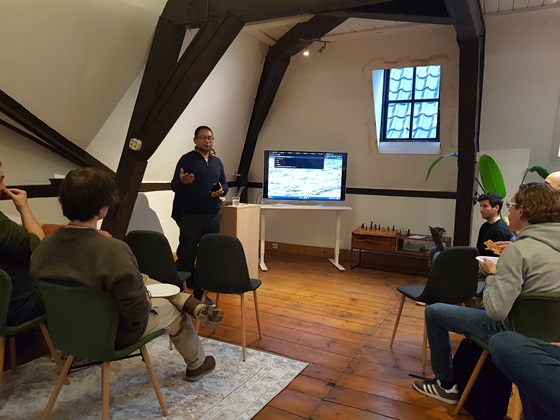Last week, Leiden-based company DataPebbles hosted this year’s first edition of DataTalks. Invited by Surajeet Bhuinya, a group of data and AI experts came together in an informal setting to discuss several aspects of AI affecting the world of data.
Sohrab Hosseini van Orq.ai discussed the integration and implementation of complex, generative AI use cases in organizations. He outlined the progression of an organization from employing AI for internal purposes with low reputational risks to developing client-facing products enhanced with AI.
Hosseini emphasized the critical role of involving domain experts in these processes and the necessity of managing risks effectively. Furthermore, the talk underscored the importance of continuous adaptation to the evolving landscape of AI technologies and their applications in various fields.
Emotions
Julian Lo Dico from Data Pebbles explored the use of large language models (LLMs) for task-specific applications, emphasizing the importance of guiding these models for optimal results. The discussion included examples of using sentiment analysis models in unique applications, such as creating a conversational bot that responds with opposite emotions to the user.
He also highlighted challenges such as model hallucination and biases, and proposed a guiding framework to improve model performance, especially in smaller, less capable models. The framework aims to minimize unwanted side effects and increase the accuracy of task-specific models while acknowledging the trade-offs between model freedom and direct control.



